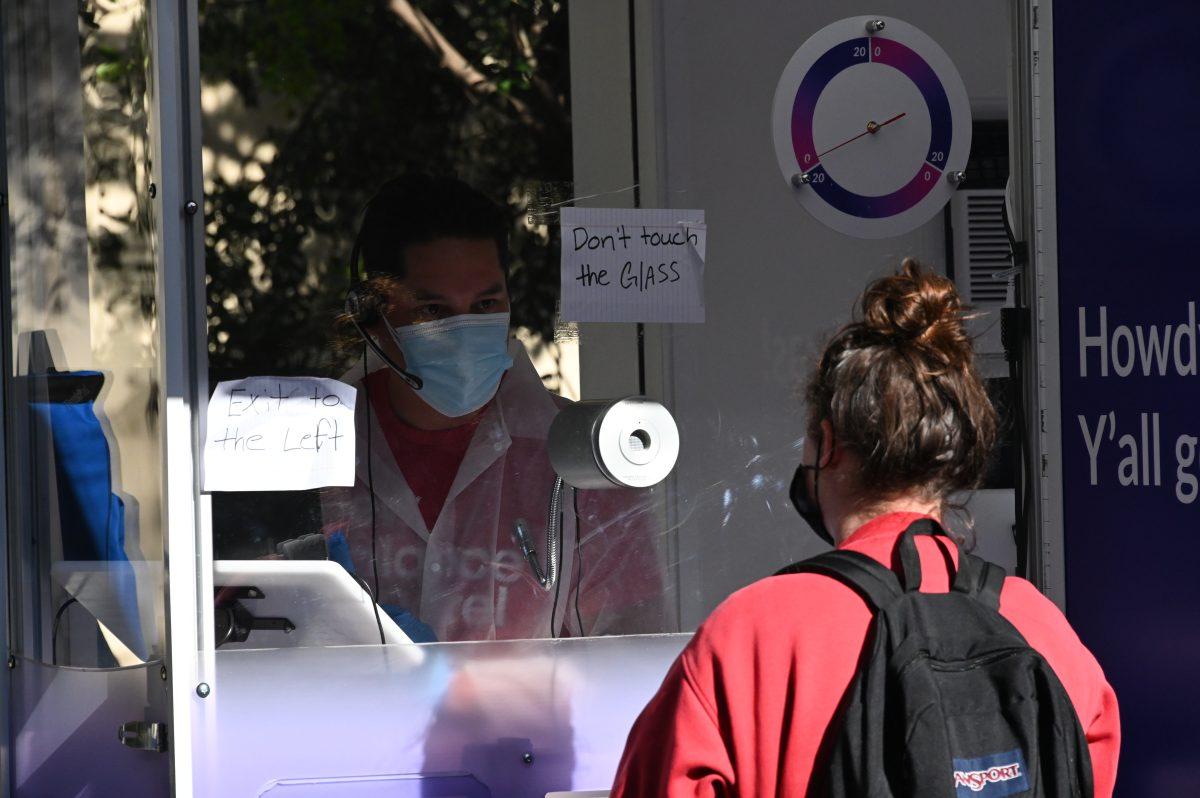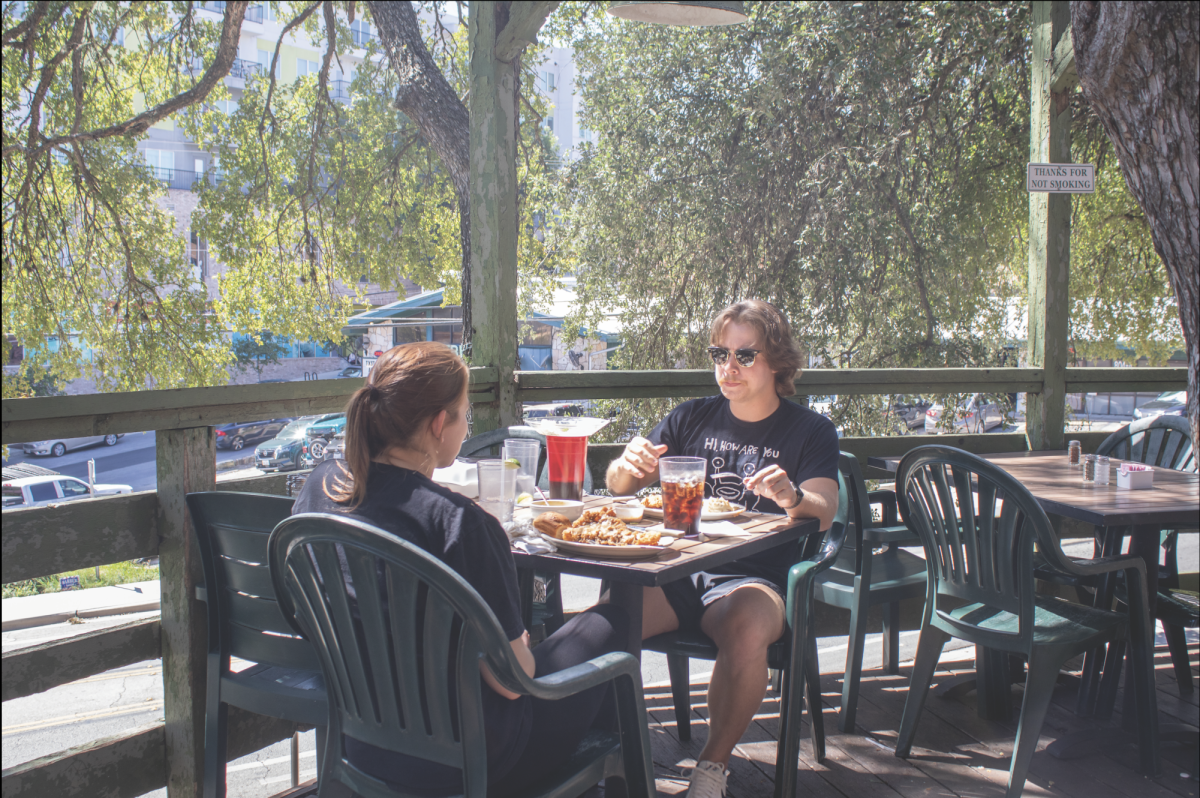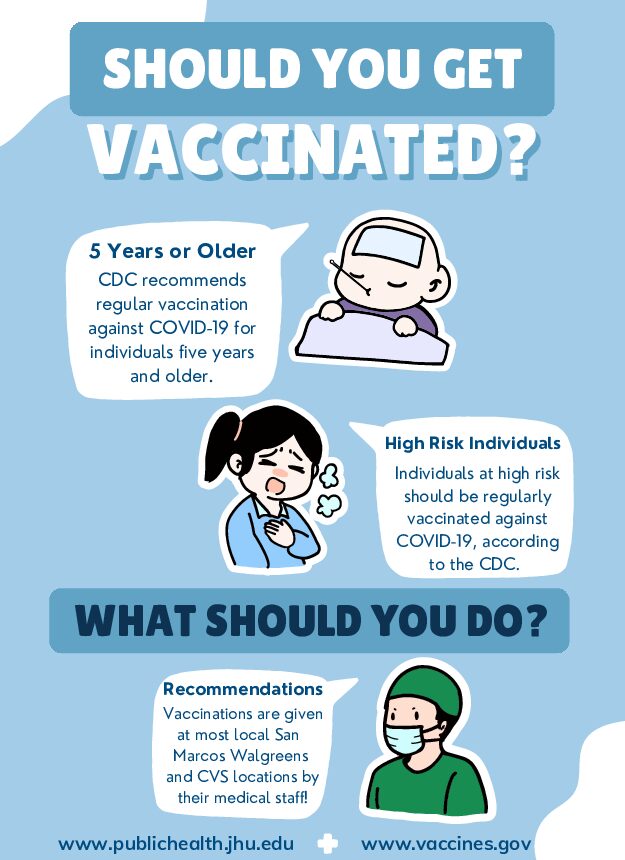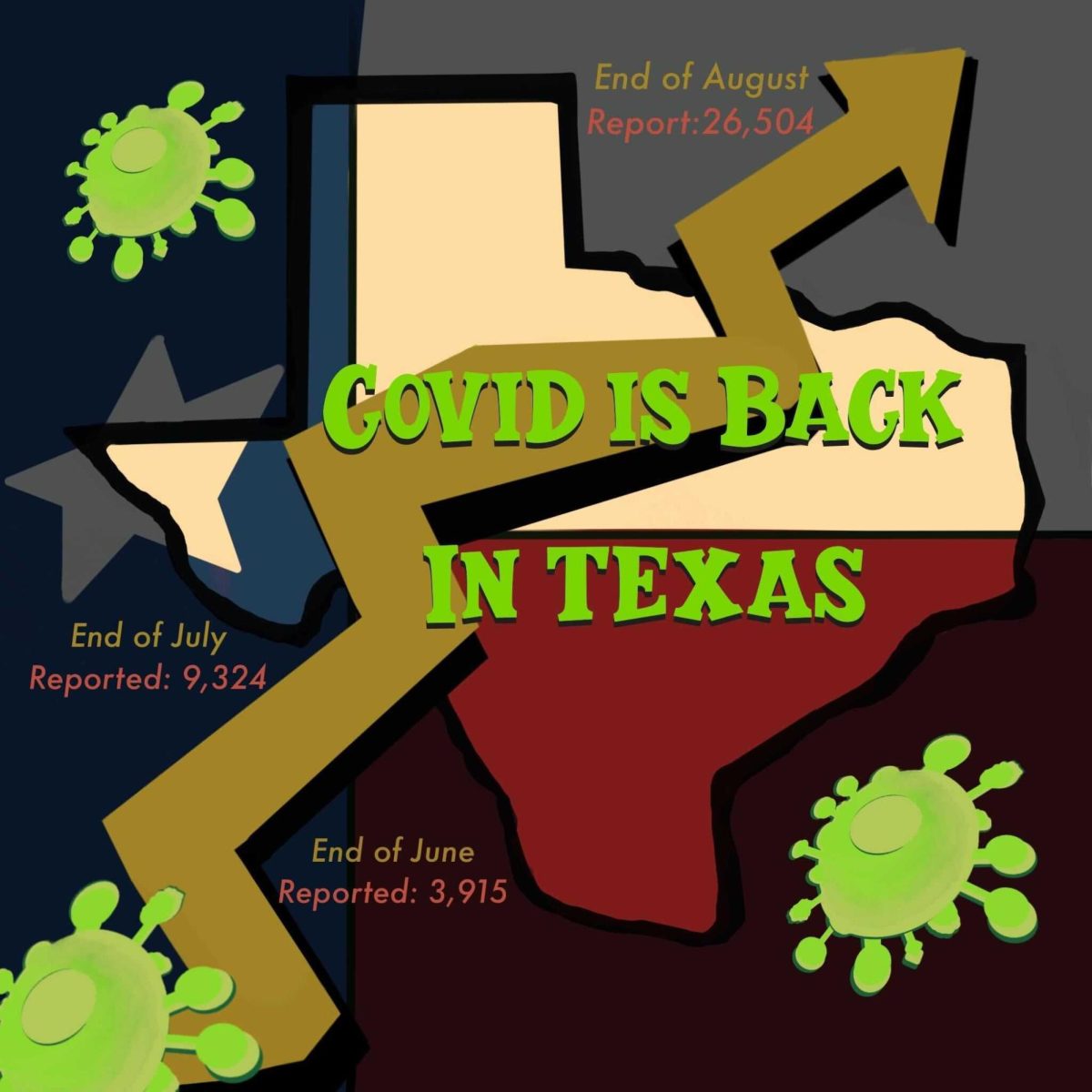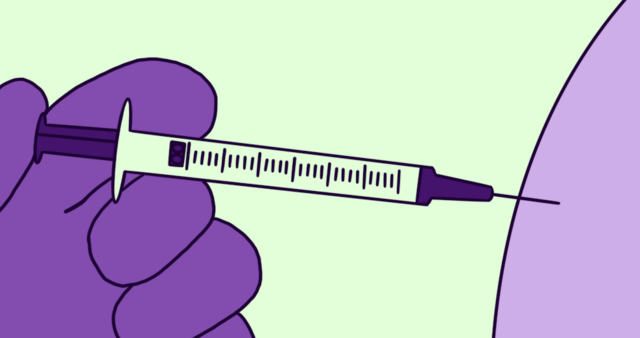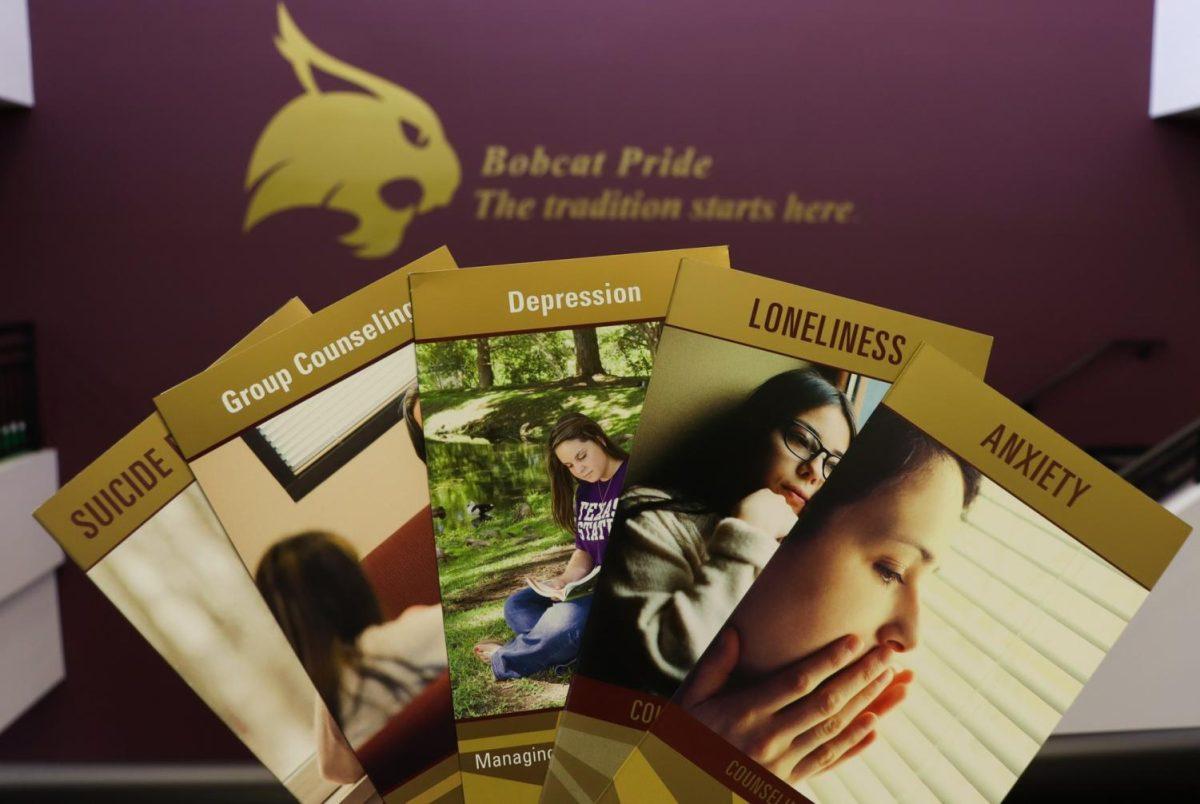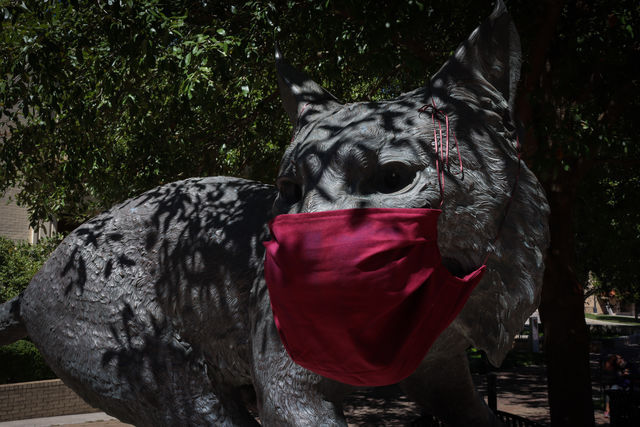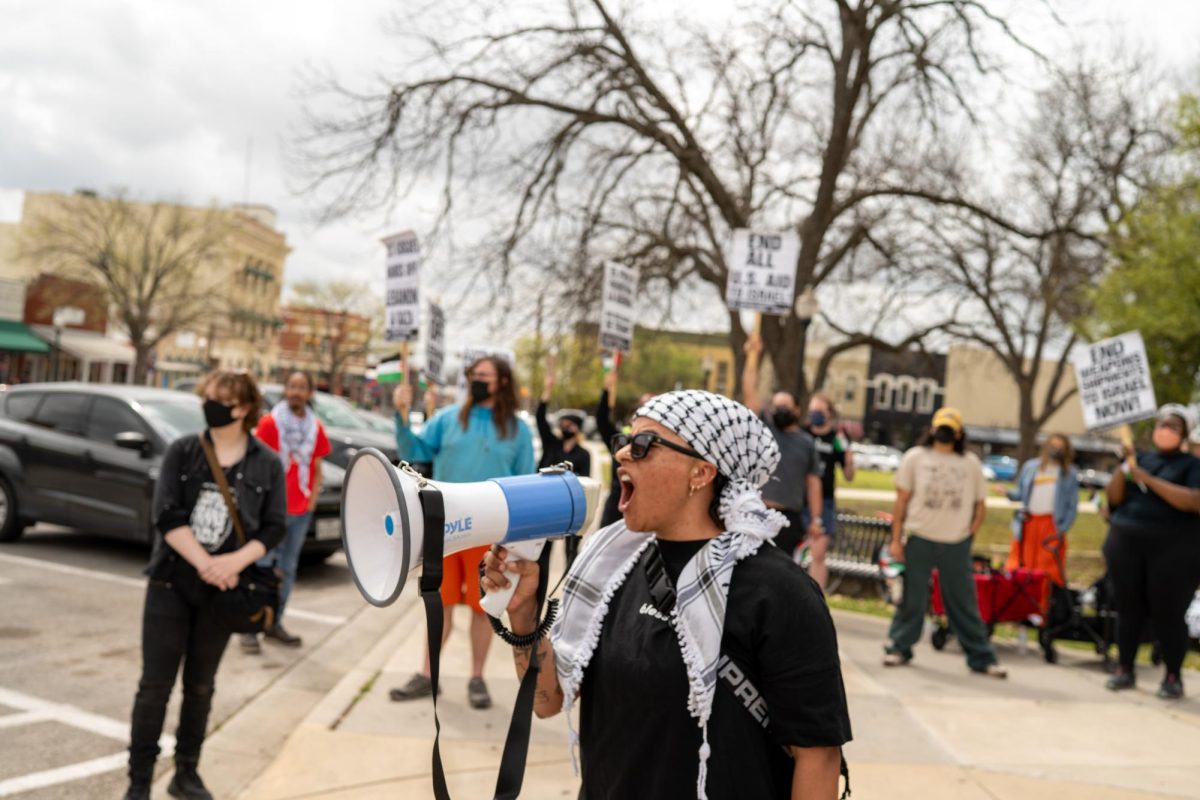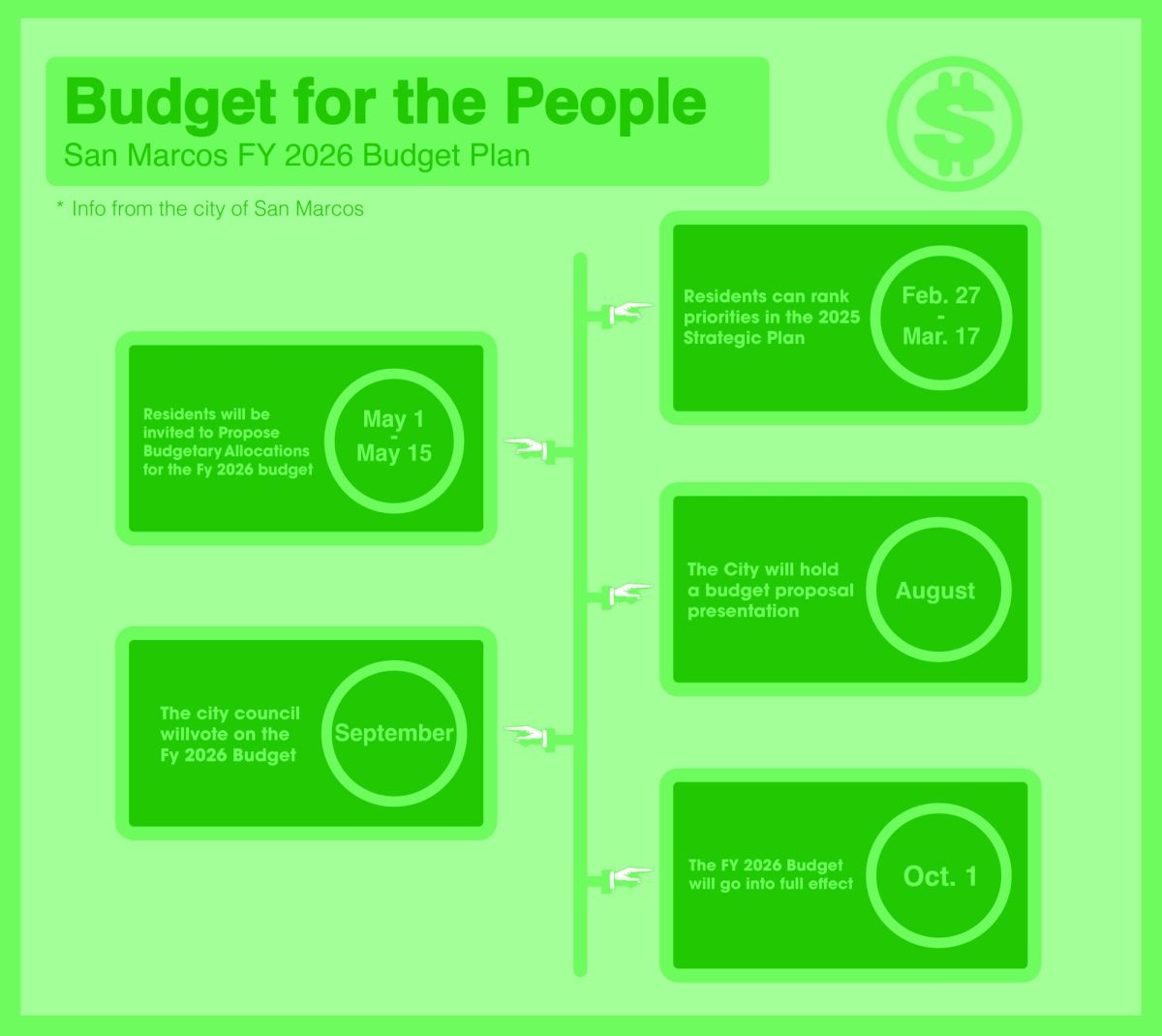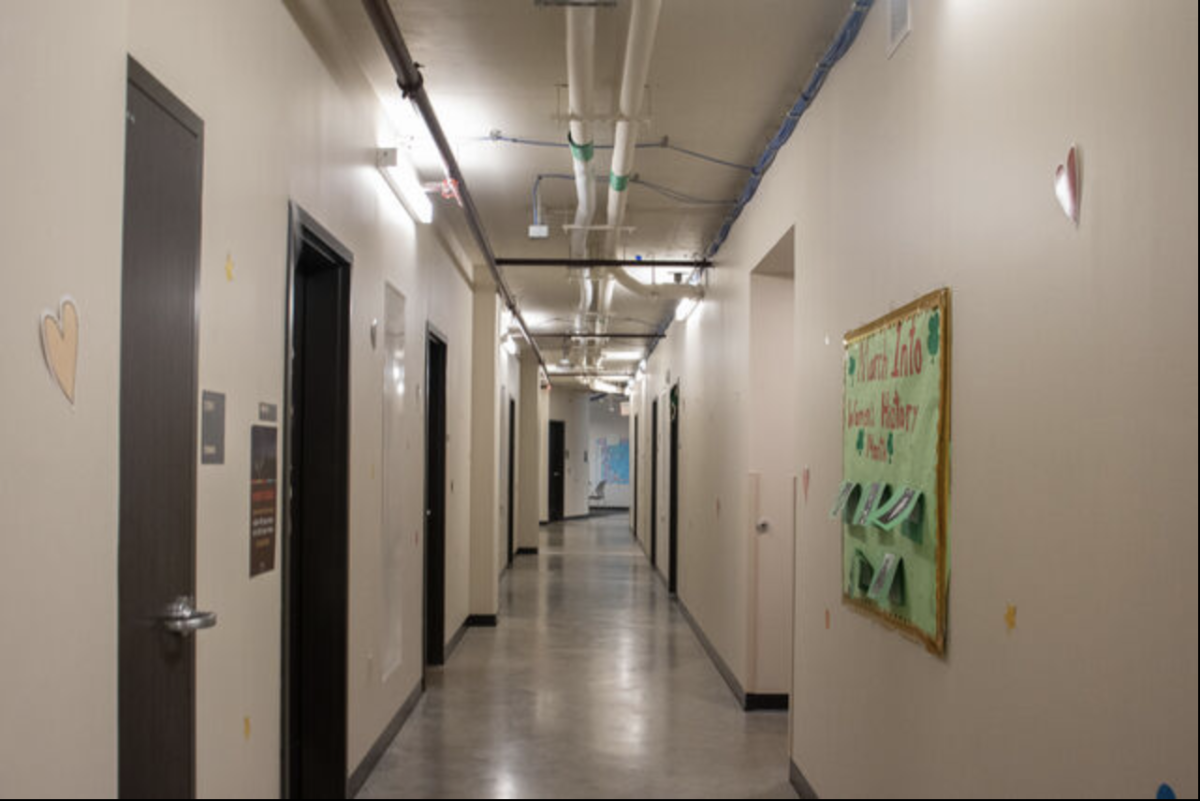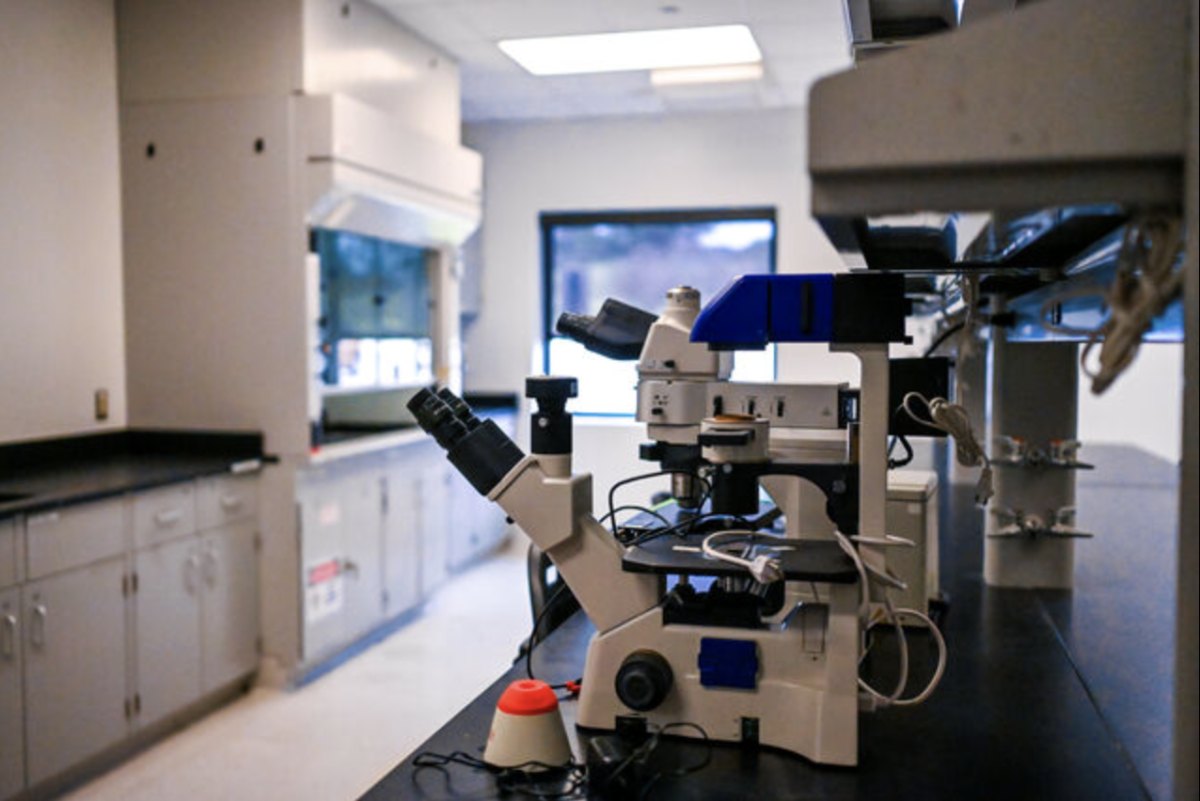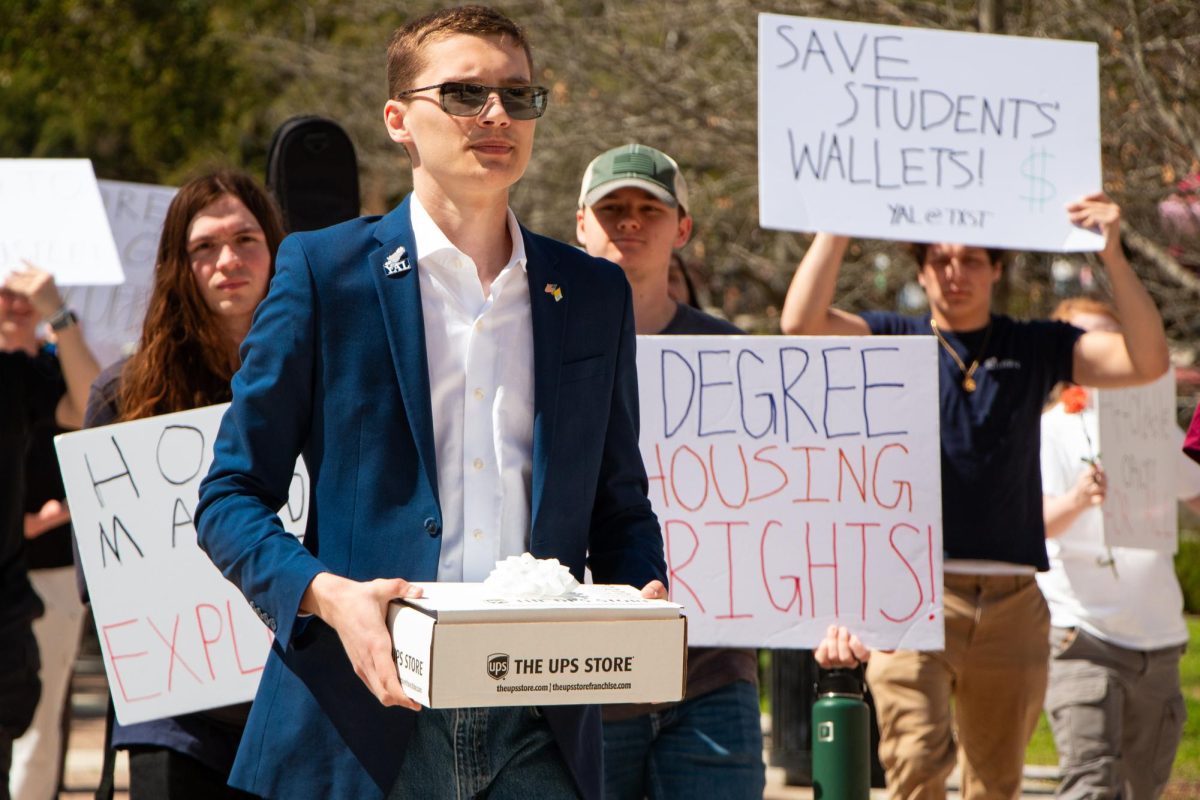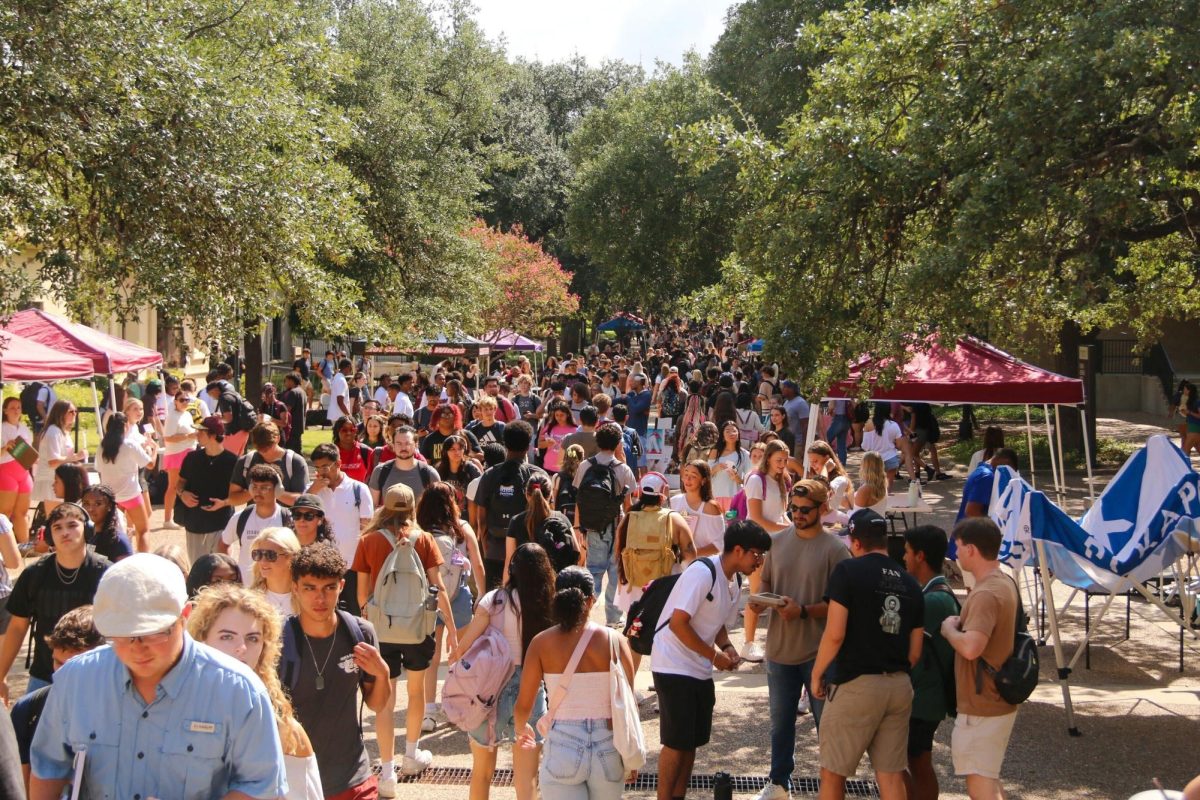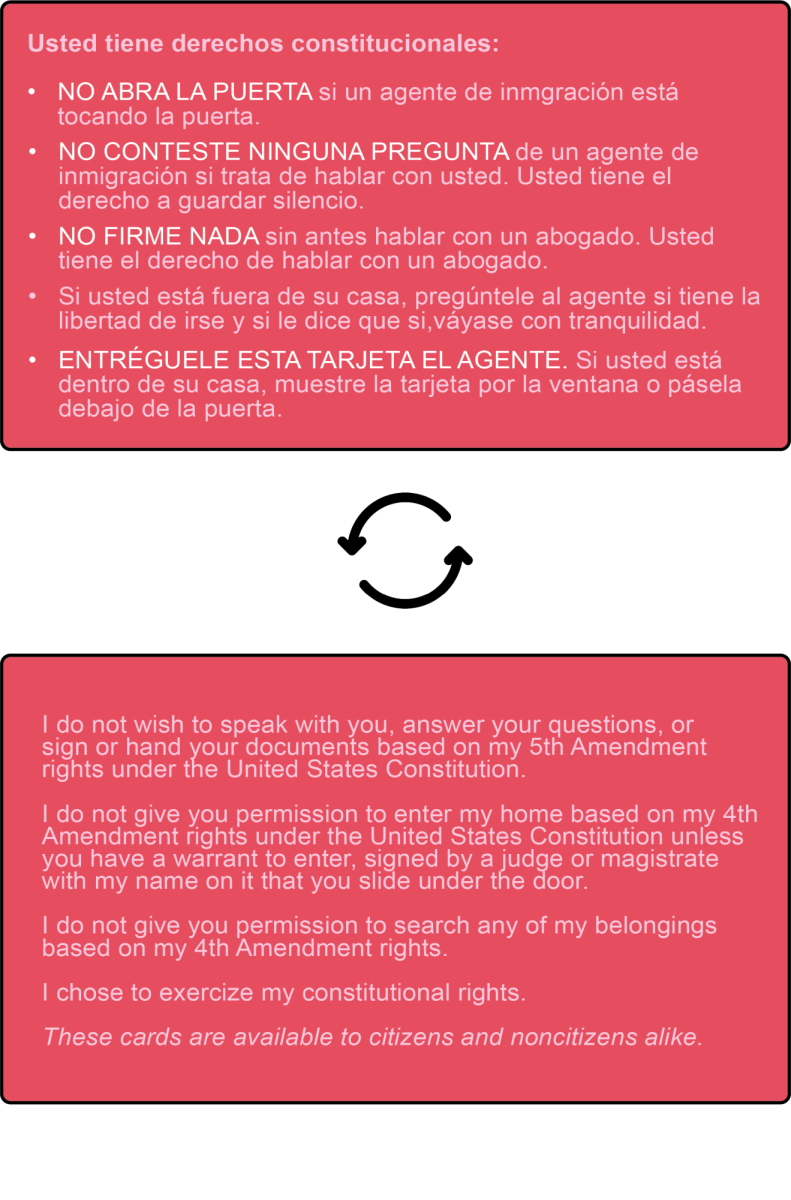In an effort to keep its campus community safe from COVID-19, Texas State continues to push vaccinations, testing and the use of face masks. These measures have been recognized as the triumphs for preventing the spread of COVID-19, according to Student Health Center Director Dr. Emilio Carranco.
Since March 2020, the university has worked to manage the transmission of COVID-19 across its campuses while also navigating obstacles along the way. Unlike other universities across the nation, Texas State cannot legally enforce a mask mandate due to Gov. Greg Abbott’s executive order, which prohibits state-funded institutions from implementing a mask mandate.
The university also lost a COVID-19 testing kiosk in the last spring semester after Curative removed its site at the Student Health Center due to a decrease in testing. Carranco said Texas State set out to find an additional testing provider at the beginning of this semester.
“We started working on trying to find a second vendor that could do that for us, and we were finally able to contact MD Diagnostic Labs, who was willing to come to our campus and provide free testing,” Carranco said.
The additional testing site was initially located at the Student Recreation Center, but since there was not enough student traffic at that location to influence high testing numbers, Carranco said the university moved the site outside the LBJ Student Center this past week instead. He added there has already been a significant increase in testing because of the LBJ location.
The difference between MD Diagnostic Labs and Curative is that MD Diagnostic Labs allows walk-up testing, while Curative asks individuals to pre-register online for an appointment. The two testing kiosks also offer different types of COVID-19 testing. Curative offers a nasal swab, and MD Diagnostic Labs offers an oral swab.
Student Government Sen. Jackson Barr believed the university needed an additional testing site on campus to give people the flexibility to test anytime, rather than having to schedule an appointment beforehand.
“It was very unpractical, to just have that one,” Barr said. “I am very happy that they’re opening that second one which I saw briefly, as I go to the Rec every few days. I think this is one of the great things that the university has done so far is the opening of the second stand because it entices people to get their test.”
Texas State is considering adding an online appointment option with MD Diagnostics Labs too. Carranco said the more testing that is done across the university community, the more information Bobcat Trace has to detect positive cases. With young adults tending to experience mild COVID-19 symptoms to no symptoms at all, Carranco said it is estimated that 40% of those infected with the virus are unaware.
The university also distributes random testing emails which, Carranco said, provides important information used to determine what the incidence of infection is and helps identify silent infections on campus.
“We really push testing [because] we want to find the silent infections,” Carranco said. “It’s important to find them so that we can get them isolated, and we can identify close contacts and get them quarantined. That’s how you break the chain of transmission, by doing that as quickly as possible. So that’s why the testing is really important.”
Due to a test kit shortage, the Curative testing kiosk by Flowers Hall was only able to administer 1,836 tests the week of Aug. 30. Faculty, staff and students who receive testing off-campus were encouraged to report positive cases to Bobcat Trace. Carranco said the university still acquires reports from off-campus testing sites, and the results are included in its COVID-19 dashboard.
During residence hall move-in from Aug.16-21, 1,468 rapid antigen tests were administered with 16 positive cases identified. There were 3,010 tests administered the first week of school and 2,020 tests for the week of Sept. 13.
This semester, the university has also pushed to bring back pre-pandemic activities, such as residence hall events. Herbert Jones, associate director of Housing and Residential Life, said resident assistants still have to follow a set of protocols from a community engagement operational guide to ensure safety.
“The first thing that we ask them to do prior to the program is to do a self-assessment in wellness and so, prior to attending an event, you know, talk with the residents about encouraging them to form a self-assessment wellness check,” Jones said. “And we provide them with the link to the [Centers for Disease Control and Prevention], and so for them to click on a link to kind of figure out if they have any of the symptoms.”
Jones said resident assistants encourage residents to wear masks during social events but cannot enforce them. To prevent the possible spread of germs and COVID-19, the hosted events tend to be in rooms with a large capacity where social distancing is an option or in outside areas. RAs are also given a 16.9-ounce bottle of hand sanitizer to use at their events.
As a resident assistant, Liam Canfield, an English junior, feels as though the protocols in the residential halls are necessary. However, he is worried about individuals who are at risk of contracting the virus and those who are unvaccinated.
“I think really the people who are getting affected by this, are those who are unvaccinated, or at risk and I think at-risk people are smart enough to do something like commute or something like that,” Canfield said. “So, I feel fine, I’m more annoyed with the people who do not follow through, get [vaccinated] and stuff like that.”
While there are limitations on what the Department of Housing and Residential Life (DHRL) and the university can enforce, Canfield believes doing what’s allowed and necessary to keep people safe can be the best thing during this time.
“The more stuff that we do to take action, the better off everyone else is going to be,” Canfield said.
As of now, Jones said there has not been a cluster of positive cases within any of Texas State’s residence halls, despite the increase in the number of residents.
“We’ve not been able to identify any particular cluster in any of our buildings,” Jones said. “Now with that said, recognizing that last year, you know, our occupancy was about 75-80%. This year we’re up in the 90s we’re about 97% to 98%. So, there’s more people here now, but since then we still haven’t seen any clusters, you know, whether it’s in a communal bathroom or anything.”
DHRL doesn’t work hand-in-hand with Bobcat Trace but they are informed on who or who hasn’t tested positive and can assist in finding a place residents can quarantine if they test positive. Jones said when a resident tests positive, they are not required to notify their resident assistant unless they choose to do so.
Because transmission of the virus is possible across campus, such as in classrooms or residence halls, the university has 20 contact tracers who monitor transmission and send out COVID-19 transmission notices daily.
“What happens is the contact tracer will send out a close contact notice, and that notice, which is sent through email, contains all the information that the close contact needs in order to understand what their quarantine period is, to understand how to quarantine,” Carranco said.
While the university continues to offer free vaccinations, Carranco said he hopes those who are vaccinated also understand it is still possible for them to catch COVID-19 and infect others.
“We’re seeing more and more vaccinated people who are getting infected,” Carranco said. “Now, the good news is that if they’re vaccinated they’re not very likely to develop severe illness, they’re not likely to end up in the hospital, that’s the good news. The bad news is that they can spread infection and that’s exactly what we see sometimes. They’re spreading infection to their family or their friends.”
To encourage students to get vaccinated, Texas State launched an incentive program on Sept. 7. Through the program, students can win prizes such as $10 in Bobcat Bucks, $500 and a red parking permit for the spring semester.
While Barr supports the university’s strive to increase vaccination rates across the campus community, he assumes the incentive program can only work if people want to get vaccinated, not because they are encouraged by a prize.
“Texas State is a public institution, meaning that we have to live by the governor’s mandate that says we can’t require, necessarily, people to wear their masks, right, and so we need to encourage them or give incentives to people to get them vaccinated,” Barr said. “I have nothing to back this off though, this is just intuition, that that wouldn’t convince the people who are not already vaccinated, you know if they’d be won over by $10 or something. But, I think it’s the best thing to do at the moment, the university, in terms of that one protocol.”
Carranco agrees that some choose to not receive a vaccine for reasons that won’t change but the incentive program and spreading factual information can help encourage individauls to get vaccinated.
“I think vaccinations have been widely available for a long time and I think the folks who wanted to get vaccinated did so fairly quickly,” Carranco said. “We still have some people who, for whatever reasons, are hesitant and of course we have some people who just simply have decided they don’t want to get vaccinated and, you know, I think what we want to do is to continue to share information with people so they can make an informed decision.”
Since Sept. 19, Texas State has administered 11,732 vaccines to 6,485 individuals. Carranco said there has also been a decline in positive cases across campus.
“If you look across the state, you see the same thing. You also see a decrease in hospitalizations,” Carranco said. “So, it’s very clear at this point that the worst of the surge is behind us, and that we’re now going to see a period where the situation just continues to improve.”
For more information on Texas State’s COVID-19 response, visit the university’s Roadmap to Return website.
Categories:
Texas State fights the spread of silent infections, encourages COVID-19 testing
Timia Cobb, News Editor
September 29, 2021
Texas State exercise and sports science major Sarah Clements (right) talks to Curative site lead Louis Espinoza (left), Wednesday, Sept. 30, 2020, at a COVID-19 testing booth by the Texas State Quad. Clements finished her test in under five minutes.
0
Donate to The University Star
Your donation will support the student journalists of Texas State University. Your contribution will allow us to purchase equipment and cover our annual website hosting costs.
More to Discover



